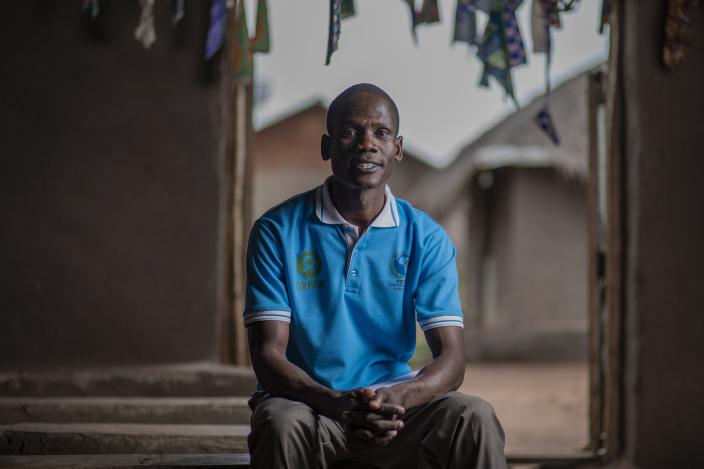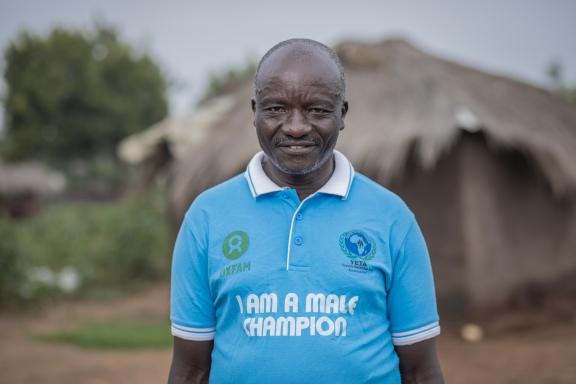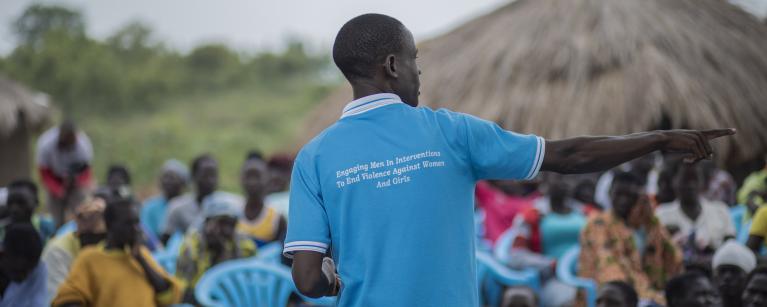Male Champions have been actively engaged as allies and advocates in promoting gender equality, focusing on supporting women’s active participation in community activities and decision-making processes.
Through their involvement, male champions have harnessed their influence to challenge traditional gender norms, addressing systemic barriers and fostering an inclusive environment where women can thrive.
They have taken a proactive role in advocating for increased women’s participation in leadership roles and collaborating with women-led groups to create a unified front for gender equity. For example, in Bidibidi Zone 2, male champions identified and supported a woman leader in the 2024 Refugee Welfare Council 3 elections.
This tangible act of advocacy demonstrated the real impact of male support in advancing women’s leadership and governance. The success of this initiative has signalled a broader cultural shift toward gender-inclusive leadership within the settlement, allowing women to contribute meaningfully to peacebuilding processes.
The involvement of male champions has led to significant behavioural change, as these men have become role models within their communities.
They advocate for shared domestic responsibilities, challenging harmful masculine stereotypes and increasing male participation in care-giving and household duties. This shift has contributed to fostering gender equality within homes.
Additionally, male champions have led campaigns against gender-based violence (GBV), resulting in a decline in domestic violence incidents in the communities where they are active.
Their collaboration with women-led groups has further strengthened efforts to dismantle patriarchal norms, and together, they have organised joint initiatives and campaigns that promote gender-inclusive approaches.
These efforts have encouraged the active participation and leadership of women in decision-making processes, ultimately advancing gender equity and creating a more balanced and inclusive community environment.
YETA’s Male Champion Approach to GBV Prevention
YETA trained and engaged the Male Champion structure using the Gender Balance Tree framework. This approach involves educating male champions about gender equality and empowering them to support and advocate for balanced gender roles within their communities. By leveraging this model, YETA aims to enhance male participation in promoting gender equity and addressing gender-based challenges.
They created awareness on peacebuilding and on GBV prevention in the community. Since most of the people in the community neither speak nor write English, YETA chose to use the gender balance tree, which uses drawings to thoroughly explain to the community the causes of GBV, gender roles at the household level, by highlighting the importance of working together for their family development.
YETA is mostly in GBV prevention through awareness programs, and sometimes they use the community radios, megaphones in communities to pass information, and community engagements to help them understand the root causes of GBV to draw and identify the challenges and secrets that men and women keep from each other that escalate into GBV at the household level.
When the male Champions identify GBV cases, they report to YETA, which intervenes and talks to them through dialogues to see that the issues are resolved.
If a conflict escalates beyond what YETA can do as a prevention partner, for example, situations when a GBV case has already happened, they engage the lead partners on the ground, such as OPM, who come in and make things better. The organization is mostly in GBV prevention and not response.

“We have continuously talked to men to try as much as they can to support their wives in doing businesses, and looking after children, among others, and this has surely led to peace in homes.
These trainings are always attended by men from the refugee groups and those from host communities.’’
I live as a good example in my home by maintaining peace and harmony, and when I started preaching about peace, it was easy to change men.” David Aungo, a dedicated trainer and advocate.

“Gone are the days when we sat back, allowing women to bear the burden of household chores alone,” says Long John, the Chairperson of Male Champions in Imvepi Settlement.
“With the training provided by YETA, many of us have returned as advocates for peace,
eager to inspire our fellow men to support and uplift the women in our communities.”
Long John adds that as male champions, they lead exemplary lives by maintaining peace and harmony in their own homes, which the entire community recognises. Because of this, it became easier to talk about peace and inspire change, as many men viewed them as role models.
